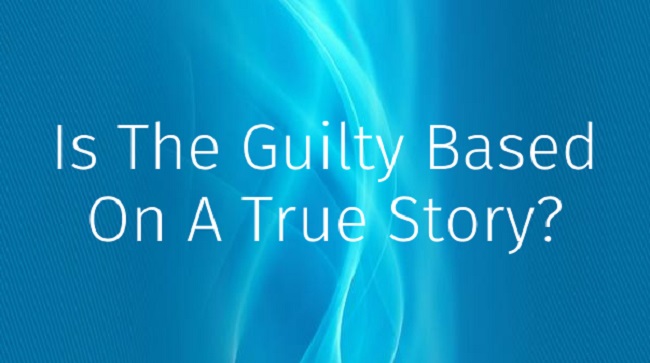The Netflix original series “The Guilty” is a taut police procedural drama that takes place entirely within a Los Angeles police station’s dispatch centre. A police officer assigned to the night shift who is tasked with answering 911 calls becomes involved in a kidnapping and does everything in his power to save the victim while he is stuck at his desk.
The process is tracked closely, and both setbacks and successes are presented as life-or-death moments for the protagonist.

The video also shows glimpses of the metropolis where the action takes place, which is chaotic due to forest fires, uprisings, and crime waves that the authorities are unable to control. The protagonist is also deeply flawed; he brings a lot of his own emotional baggage to bear on the situation and makes some critical mistakes.
The lines between good and evil are somewhat muddied, giving the story a more realistic, morally ambiguous tone than is typical in thrillers. Maybe the events depicted in “The Guilty” happened in real life. We made the call to investigate.
Contents
Could you Tell Me if The Guilty is Based on a True Story?
To dispel any rumours, “The Guilty” is not based on actual events. This is a remake of the 2018 Danish film of the same name (Den Skyldige), directed by Gustav Möller and written by Emil Nygaard Albertsen.
The study of a real 911 call, in which he was able to imagine the victim’s predicament, gave him the inspiration for the film. He wanted to create a film on the idea of how different people might interpret the same event.
In order to have his audience create their own mental representations of what they think is happening, Möller built his story around rich soundscapes. It’s interesting to note that the immensely successful true-crime podcast “Serial” was also an influence on him. It was films like “Dog Day Afternoon” and “Taxi Driver” that served as inspirations for the film’s tense atmosphere, extended takes, and first-person perspective of a single individual.
The Plot of Guilty
The plot of the remake, which features Jake Gyllenhaal in the lead role, is largely faithful to the original, however director Antoine Fuqua and screenwriter Nic Pizzolatto have made certain changes to make the film’s setting feel more realistic. Numerous timely themes are woven into the fabric of the plot, from the catastrophic California forest fires to the subplot revolving around unrestrained police violence.
And yet, Gyllenhaal’s role is not just a study of how the cops often botch situations, despite his laser-like devotion on saving the victim. The final scene of the film focuses on an example of police violence, elaborating on the film’s subject that law enforcement can make serious mistakes.
Seeing things via an officer’s eyes also lends a sympathetic air to the film. The audience sees the high-pressure scenarios to which law enforcement agents are subjected, situations to which they carry their own emotional baggage and biases. So, the protagonist of the film isn’t a hero in the traditional sense, but rather a flawed human being who does his best to make a difference but ultimately fails.
After actor Jake Gyllenhaal approached director Antoine Fuqua about directing the script in a compressed 10-day shooting schedule, the remake was greenlit and cast. The filmmaker was first apprehensive, but after becoming invested in the story, he agreed to take on the project.
The principal actor apparently contributed to the creation of the script, and the film was shot, as represented, in a single location right before a lockdown.
Last Words
The purpose of Möller’s “The Guilty” was to experiment with a style of filmmaking that encourages viewers to use their imaginations rather than have such scenarios played out for them. The remade picture has incorporated more timely social issues, but it has refrained from making any overt political statements. Though it’s based on real-world events, the story’s events and characters are all made up.






























